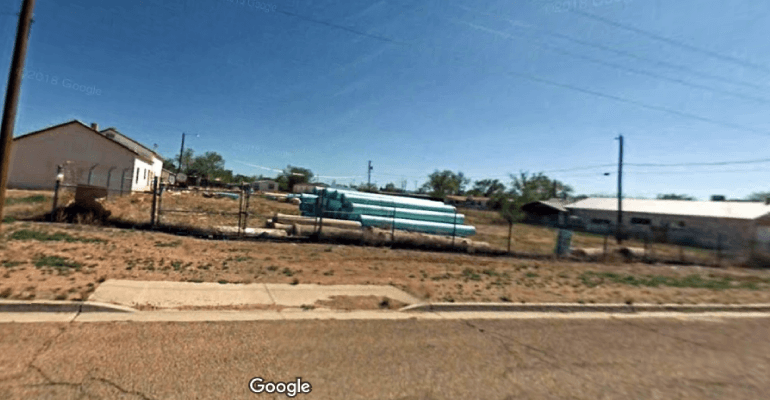
The Office of the Auditor General assisted the Navajo County Attorney’s Office investigation of potential fraud by Silver Creek Irrigation District’s former bookkeeper, Leon Palmer. Palmer then turned around and gave over $800,000 to his friend Margaret Rogers.
According to the Auditor General’s report, from August 2011 through December 2016, Palmer withdrew $829,400 of district monies and reportedly gave it all to Rogers. Authorities say Rogers knew, or should have known, the monies she requested and received from Palmer were district monies. Some of these monies were purportedly deposited in and spent from the joint checking account she held with her husband, Russell Rogers.
The Navajo County Attorney’s Office presented the evidence to the Navajo County Grand Jury. Ms. Rogers and Mr. Rogers were indicted on five felony counts related to theft, conspiracy, assisting a criminal syndicate, and money
laundering, and Ms. Rogers was indicted on three additional felony counts of fraudulent schemes. Palmer passed away in February 2018.
Auditor General’s overview:
The District, established in 1893 as a special taxing district, manages water storage and conservation projects for 3,000 acres in the Snowflake, Taylor, and Shumway communities and is overseen by a three-person governing board.
The former bookkeeper was the sole manager of the District’s finances for over 40 years. He worked part-time until his resignation in January 2017.
The Former bookkeeper withdrew $829,400 of district monies and reportedly gave it to Ms. Rogers after she repeatedly requested money
From August 2011 through December 2016, after Ms. Rogers made apparent repeated requests for money, the former bookkeeper withdrew from the District’s bank account $829,400 by cashing 546 district checks he had issued payable to himself or cash. He generally cashed one to three checks per week in amounts ranging from $300 to $2,800. None of these cashed checks corresponded with deposits made in his personal bank accounts. Rather, the former bookkeeper
reportedly gave all this money to Ms. Rogers by regularly leaving the cash at a predetermined location: a storage shed Ms. Rogers had rented and to which she provided him a key. Three of Ms. Rogers’ family members reported to
investigators that pursuant to Ms. Rogers’ requests, they had frequently picked up cash from the storage shed.
They either delivered the money to Ms. Rogers personally or transferred it to her through a financial services company. One family member indicated that Ms. Rogers allowed her to keep $100 each time she picked up the cash on Ms. Rogers’ behalf. Although the former bookkeeper indicated that Ms. Rogers agreed to repay the District with interest, no written agreement was created, and no money was returned to the District.
Ms. Rogers knew, or should have known, the monies she requested and received from the former bookkeeper were district monies
In Ms. Rogers’ home, investigators located district accounting ledgers from 2011 that the former bookkeeper stated Ms. Rogers must have taken from his home office and “figured out that the Irrigation (District) had some money.” The former bookkeeper also reported to investigators that he had told Ms. Rogers multiple times if he was not repaid the district money he gave her, they would both go to jail. Moreover, text messages obtained from Ms. Rogers’ and the former bookkeeper’s cell phones show Ms. Rogers knew she was receiving district monies and should be returning those monies to the District. In fact, a July 2015 text message from Ms. Rogers’ cell phone to the former bookkeeper states “… Hopefully Monday or Tuesday at the latest the check that I received from this study will be clearing the bank. Then I can pay irrigation (the Irrigation District) off in full.” (emphasis added).
Ms. Rogers and her husband likely used district monies for personal expenses
Because district monies Ms. Rogers received from the former bookkeeper were in cash, investigators could not determine the specific use of those monies; however, available records show the monies were likely used for Mr. and Ms. Rogers’ personal expenses and Ms. Rogers’ gambling activity. Mr. and Ms. Rogers’ income deposited into their joint bank accounts from social security, pension, and disability payments was insufficient to cover their account withdrawals. Specifically, available bank records show that from June 2011 through January 2017, deposited income from those three sources totaled $74,285, which was not enough to pay for their withdrawals without a total of $104,038 in cash being deposited. Those withdrawals were for cash, truck rentals, and retail and grocery store purchases but did not include other typical living expenses such as those for rent, utilities, medical costs, personal care, and entertainment expenses, which were likely paid with cash. Likewise, although available gambling records were limited, Ms. Rogers may have used district cash to support her Arizona gambling activities that resulted in a net loss of $102,153 for the 3 years ended January 2017.
District governing board failed to provide adequate oversight and maintain effective internal controls
The district governing board did not establish controls to ensure district monies were properly safeguarded. In fact, no written policies for financial processes existed. Governing board members stated they trusted the former bookkeeper and did not independently verify transactions. Specifically, without oversight, he was allowed to issue district bills, collect cash and check payments, make bank deposits, record transactions into district accounting records, prepare and sign checks, receive bank statements, and reconcile bank statements to accounting records without oversight.
